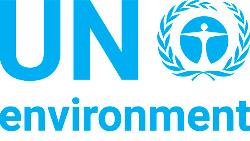News

- Ministry of Ecology, Geology and Natural Resources of the Republic of Kazakhstan
- Nazarbayev University
- Ministry of Infrastructure and Industry of the Republic of Kazakhstan
- Organization of Economic Cooperation and Development
UN Environment’s (UNEP) “Sustainable Low Emissions Transport” global project aims to support developing countries and countries with economies in transition to provide sustainable low-emission transport policies that improve public health through the use of cleaner fuel; mitigate the effects of climate change by improving vehicles and reducing short-term climate pollutants; and promote investments for walking and cycling infrastructure.
One of the objectives of the UNEP project is to promote policy development for cleaner transport by developing appropriate fiscal policies to promote more fuel-efficient vehicles, including electric vehicles; and other policies such as car labelling; as well as the development of a national vehicle. Within the framework of the project, the basic indicators of the fuel efficiency of the road transport sector in Kazakhstan were determined and analysed, as well as the scenarios for the development of the road transport sector in Kazakhstan and their impact on fuel consumption.
Moving to a greener economic path of development will require a more rational use of natural resources as well as a reduction of negative environmental impacts. While most of the resources needed to support the greening of the economy are expected to come from the private sector, the public sector still has a role to play, particularly in creating incentives and supporting new green technologies.
Parties to the UN Framework Convention on Climate Change and the Kyoto Protocol (non-Annex I country), as well as signatories of the Paris Agreement on Climate Change have committed to “nationally determined contributions” (NDCs) and defined both conditional (on sufficient international support) and unconditional targets on mitigation and adaptation.
In order to be successful, governments will need to ensure that they put in place climate-related investment programmes which will identify the most cost-effective projects to be supported with public funds. Relevant ministries will need to prepare economically sound public investment programmes that can effectively compete for support and leverage funds from both budgetary and donor sources.
-
The development of appropriate fiscal policy to promote more efficient vehicles, including electric vehicles; as well as other policies such as car labeling;
-
The development of a national inventory of vehicles with a detailed description of the average fuel economy on vehicles in different years to determine the basic fuel economy and trends
.
-
Development of a national vehicle inventory and determine the baseline fuel economy and trends
-
Assessment of Clean and Efficient Vehicle Policies and Potential Impacts in Kazakhstan
-
Final Workshop and Trainings on Assessing Impacts of Transport Policies in Kazakhstan and Central Asia
-
Economists
-
Transport workers
-
Environmentalists
-
Ecologists
- See the report here
